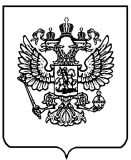All schools of Tatarstan will be transferred to the ACT

As the General Director of the Center for Information Technologies of Tatarstan, Nikolay Nikiforov, said, maximum efforts are being made in the republic so that in the future in each school the learning process will be conducted using only free software. However, deadlines have not yet been established, and, according to General Director Nikiforov, no one is going to set them now, because they do not want to force SPO on teachers and schoolchildren in the republic in order not to cause rejection.
“SPO is being introduced in stages so as not to create psychological barriers for teachers and schoolchildren,” Nikiforov said. “The main efforts will be aimed precisely at removing these barriers.”
Speaking of deadlines, Nikolay also notes that in 2010, when the licenses for the First Aid proprietary software package expire, the agreement on the use of Microsoft software will be extended due to the low cost of licenses. However, the amount of 6 million rubles, which were allocated in the republican budget for the development of informatization (“Electronic Tatarstan”) and the free software test in the state bodies of Tatarstan in 2008–2009, is clearly not enough for a general switch to Linux.
')
 It should not be forgotten that part of the republic’s schools have already been transferred to secondary vocational education in 2008 as part of a project funded from the federal budget (Federal Target Program “Education”). Tatarstan became one of the three pilot regions where trial implementation was carried out: in the schools of the republic (50% of urban and 20% of rural schools) a software package was installed on the basis of the ALT Linux distribution. In total, in 2008 Linux was installed in 1107 schools of Tatarstan, as well as in the Perm Territory and the Tomsk Region, which is the world's largest migration to open source software.
It should not be forgotten that part of the republic’s schools have already been transferred to secondary vocational education in 2008 as part of a project funded from the federal budget (Federal Target Program “Education”). Tatarstan became one of the three pilot regions where trial implementation was carried out: in the schools of the republic (50% of urban and 20% of rural schools) a software package was installed on the basis of the ALT Linux distribution. In total, in 2008 Linux was installed in 1107 schools of Tatarstan, as well as in the Perm Territory and the Tomsk Region, which is the world's largest migration to open source software.In general, 25 million rubles were allocated for informatization of education in the budget of Tatarstan for 2009. The development of all the ICT of the republic in “Electronic Tatarstan” provides for 325 million rubles this year, and the next - 350 million rubles. For comparison, in 2008, 300 million rubles were allocated for this purpose. In addition to the budget for the development of ICT, there is also a budget for their operation: this year it amounts to 124 million rubles.
In Russia, Tatarstan is rightfully considered to be one of the most “advanced” in terms of ICT regions, because almost 100 percent digitalization has been achieved here, as well as all settlements with a population of over 500 people are connected by optics (including 850 of 950 local authorities) .

The republic was one of the first to start informatization of schools, and it is because of this that many schools now have outdated computers. Only one third of schools (33% of 2.3 thousand) have PCs equipped with more than 256 MB of RAM, and in 44% of schools, the situation is even worse: PCs with RAM up to 128 MB are installed here. In total in Tatarstan now there are about 23 thousand school computers, and in large schools there are 0.05 PCs per student, and in small schools - about 0.08. Teachers say that computers need at least 3 times more.
By the way, the use of free software and terminal technologies is an opportunity for schools of Tatarstan to reduce hardware requirements and extend the life of existing PCs. This practice in the republic already exists: all registry offices have switched to Linux. In addition, since last year, almost 150 libraries in the republic also use open source software and terminal devices, and this year their number will increase by another 100-150. Also, all of them will also be connected to the Internet.
 By now, in the plans of the Ministry of Education and Science, by September 1, 2009-2010 school year, to install packages of secondary vocational education and train teachers in 54 thousand schools of the country. The project performer has not yet been named: it will be determined on a competitive basis, but the Ministry of Education and Science does not inform about the dates of the competition and its conditions. Probably, as in most contests, the prerogative will be given to a low price, not quality.
By now, in the plans of the Ministry of Education and Science, by September 1, 2009-2010 school year, to install packages of secondary vocational education and train teachers in 54 thousand schools of the country. The project performer has not yet been named: it will be determined on a competitive basis, but the Ministry of Education and Science does not inform about the dates of the competition and its conditions. Probably, as in most contests, the prerogative will be given to a low price, not quality. However, the amount allocated this year by the Ministry of Education and Science to equip Russian schools with free software was cut in three. The budget will be from 180 to 250 million rubles. instead of the expected 650 million rubles. In a total of two years of transferring school computers to Linux, the federal budget expenditures on the project should have amounted to about 720 million rubles, of which 59.5 million have already been spent on last year's trial implementation in three regions.
Source: https://habr.com/ru/post/59648/
All Articles